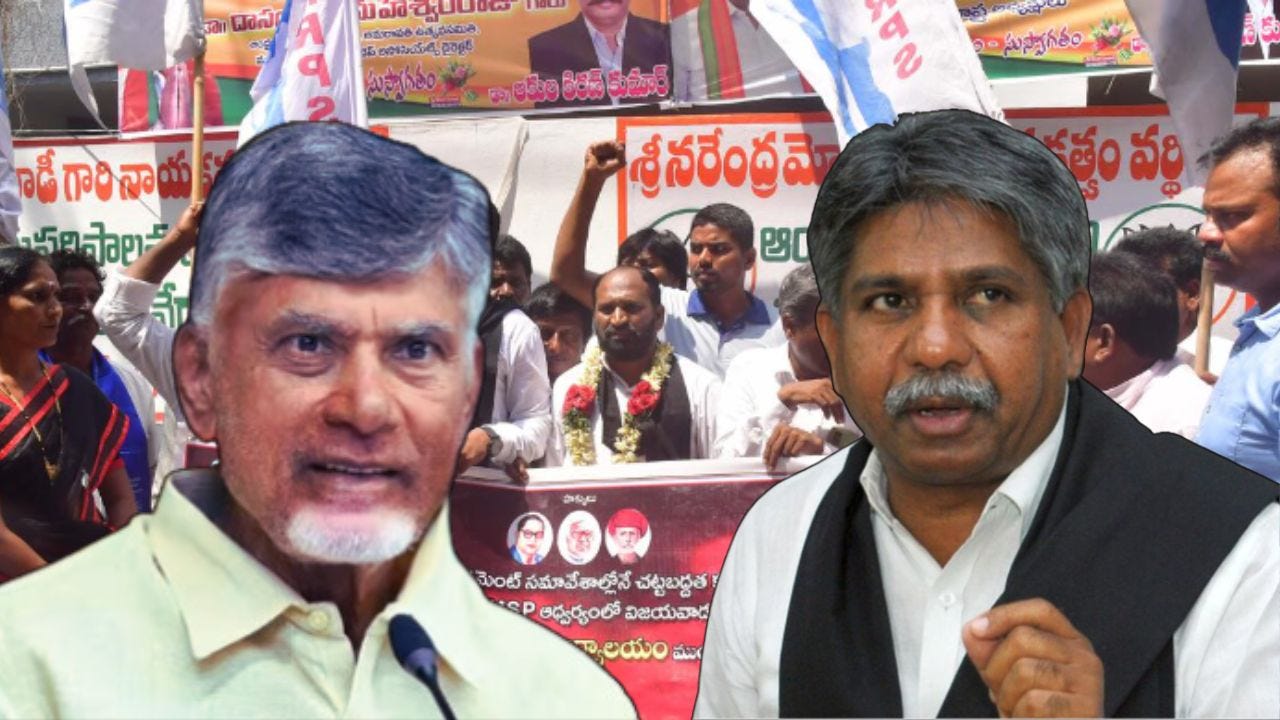Naidu’s Bold Move on Caste Subclassification: A Legacy Revived by the Supreme Court
Naidu's contribution to social justice continues to go unrecognized to this day
Telugu Desam Party chief and Andhra Pradesh Chief Minister Nara Chandrababu Naidu is not widely known for consciously engaging in social engineering in the predictable manner typical of political parties seeking to bolster their vote banks. However, one significant initiative stands out—a decision with the potential to make a substantial impact on the social structure. This was his move, years ago, to subcategorise Scheduled Castes so that reservation benefits could be distributed more evenly among all sub-castes.
Nearly 25 years after Naidu made this politically risky decision, the Supreme Court of India upheld the principle in July 2024, affirming that the sub-classification of Scheduled Castes is constitutional and that states have the authority to effect such proportionate distribution of reservation benefits.
The campaign for reservation classification gained momentum in united Andhra Pradesh in the late 1990s, led by Manda Krishna, a former Naxalite activist who spearheaded the movement under the banner of the Madiga Reservation Porata Samithi (MRPS). In united Andhra Pradesh, 59 sub-castes were classified under the Scheduled Castes, with the Malas and Madigas comprising almost 90% of the SC population.
The movement for reservation classification began when the Madigas, a major Scheduled Caste community, demanded action against what they perceived as the inequitable distribution of quota benefits in favour of the Malas. Although the Madigas were slightly more numerous in the combined Andhra Pradesh, they lagged behind the Malas in educational, social, economic, and political parameters. Often described as "Dalits among the Dalits", the Madigas could not compete with the Malas in availing themselves of the reservations.
A commission of inquiry by the state government found that while the Malas and Madigas formed 41% and 47% of the SC population, respectively, 62% of all reserved state government jobs were secured by the Malas, with the Madigas receiving only 31%. This disparity was also reflected in educational opportunities.
Under the leadership of Manda Krishna, the MRPS led the agitation for the categorisation of SC reservations to ensure that the Madigas received their fair share of education, employment, and other government-provided benefits. At the height of the movement, Chandrababu Naidu, then Chief Minister, faced both support and opposition. While various sections of society, including the media, progressives, and leftist intellectuals, backed the movement, the Malas vehemently opposed it, claiming that the advances made by their community were based on merit and invoking Dalit unity against any further subdivision of the quota system.
Despite the political risks and the strong objections from the Malas, Naidu made a bold move. His government established a judicial commission of inquiry, the Ramachandra Raju Commission, on 10 September 1996 to investigate allegations that certain Scheduled Castes were securing disproportionate benefits from reservations to the detriment of others. The commission submitted its report in May 1997, largely agreeing with the Madigas' complaints. Acting swiftly, the Naidu government issued a Government Order (GO) on 6 June 1997, subdividing the 15% reservation quota for Scheduled Castes into four categories.
The GO was challenged in court, leading to a protracted legal battle. Despite facing significant opposition, Naidu persisted in his efforts, ultimately pursuing the matter through legislative means. The issue eventually reached the Supreme Court, which in the landmark case of E V Chinnaiah vs. State of AP, ruled the Act unconstitutional. The court's decision kept the issue entangled in legal disputes for years.
Naidu’s efforts, while bold and politically risky, did not garner widespread recognition or support, particularly among the Madigas. Even during the height of the Madiga movement, critics accused Naidu of driving a wedge between Dalit communities for political gain. However, some, like the noted human rights activist K. Balagopal, argued that such accusations were unfounded.
Despite these efforts, the Madigas did not support Naidu in the 2004 elections, contributing to his defeat. Interestingly, while Naidu's initiatives, such as promoting Dalit leaders to significant positions (as in the case of Balayogi as Lok Sabha Speaker and Pratibha Bharati as Andhra Pradesh Assembly Speaker), did not resonate widely in the popular imagination of the Telugu states, even minor gestures by YS Rajasekhara Reddy or his son YS Jagan Mohan Reddy towards certain communities are often highlighted—a recognition that has eluded Naidu despite his significant contributions.
Ramesh Kandula is a senior journalist and author.






Blowing one's own trumpet is an art in itself, which is sadly lacking with CBN. As a result, his remarkable contributions to society have largely been forgotten over time.